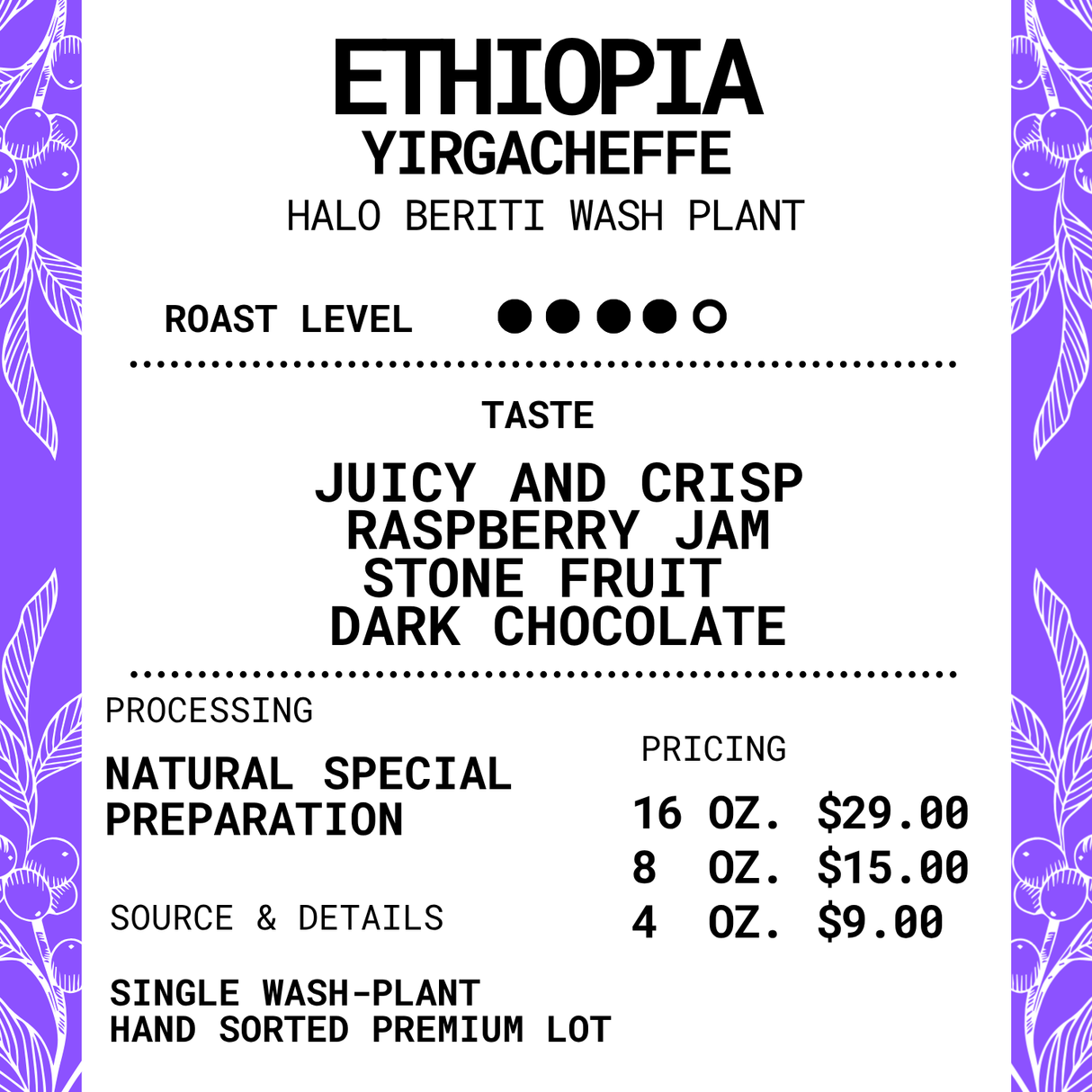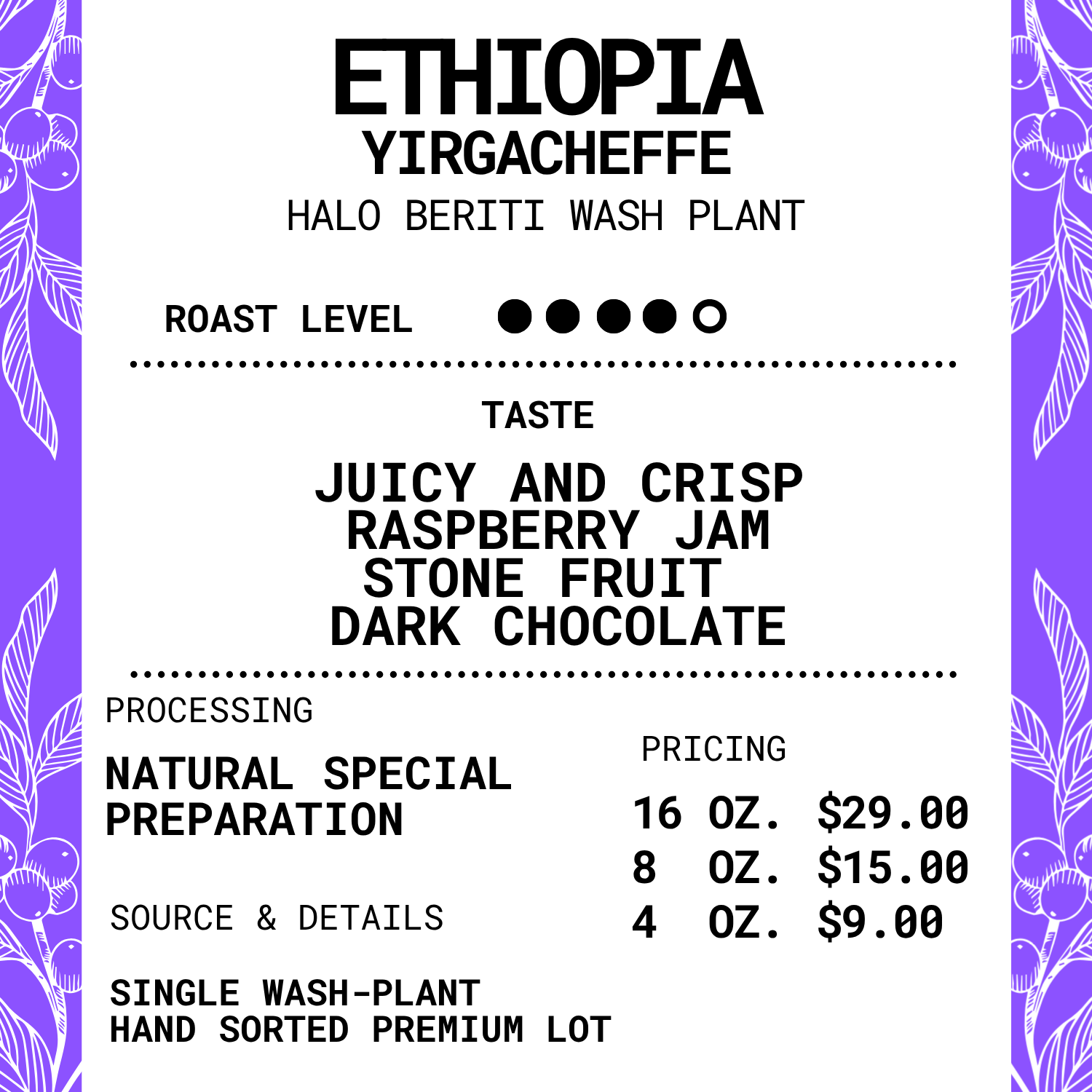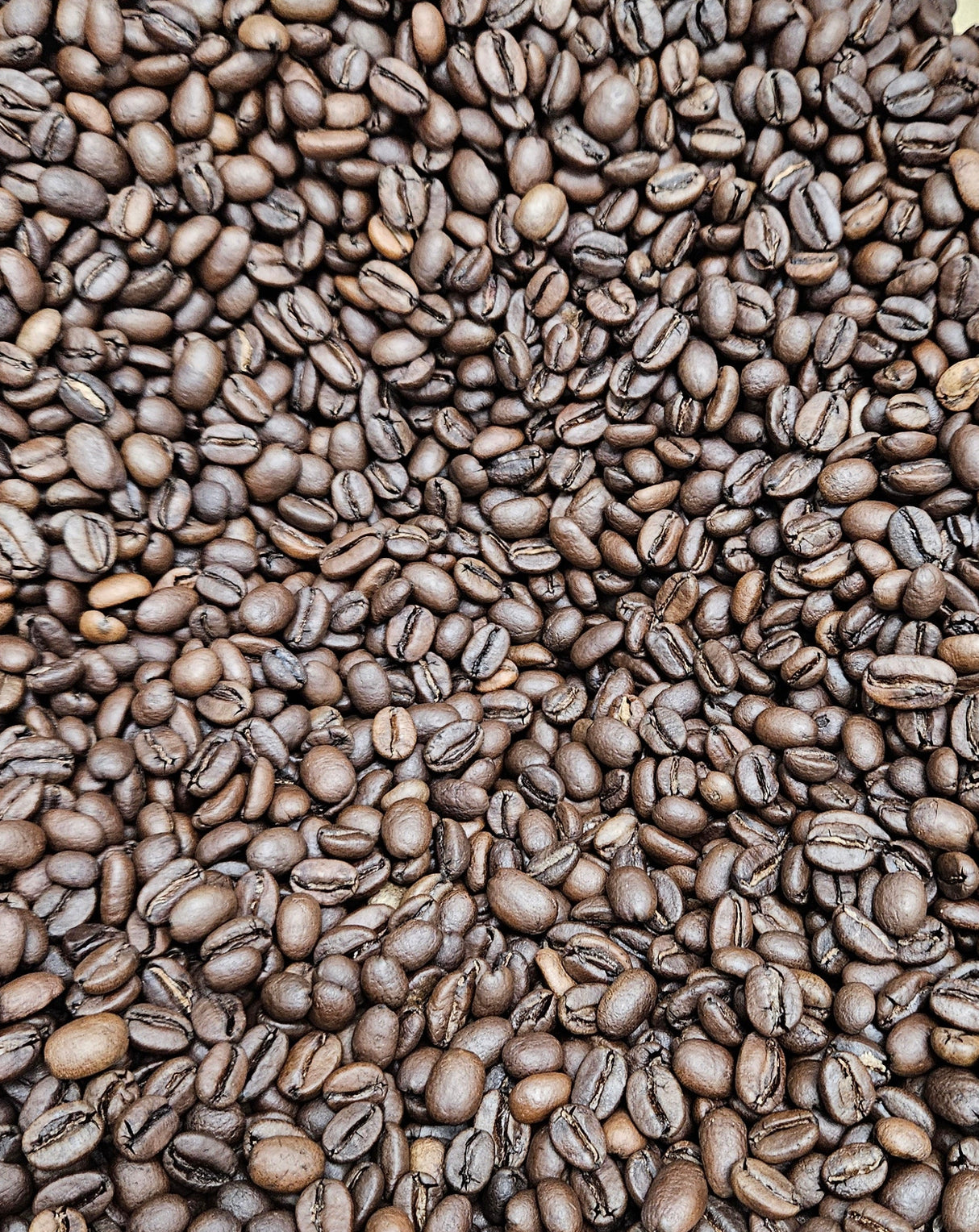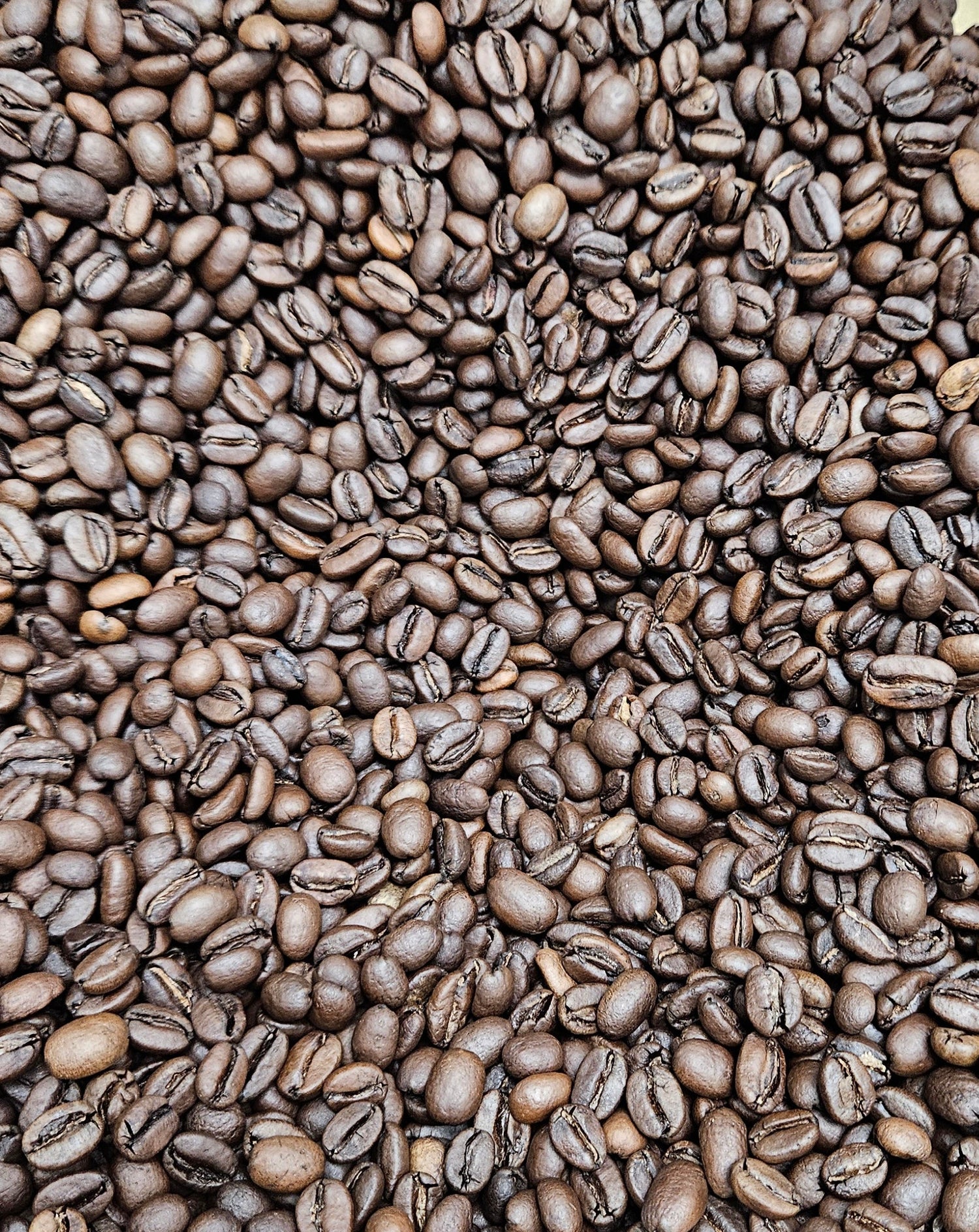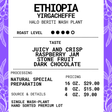Ethiopia Yirgacheffe - Halo Beriti Roasted Coffee
Ethiopia Yirgacheffe - Halo Beriti Roasted Coffee - 16 oz. / Whole Bean is backordered and will ship as soon as it is back in stock.
Care information
Care information
- Always store your coffee away from heat, sun and moisture.
- Do not put it in the freezer or refrigerator.
- Try and grind right before you brew your coffee for optimal flavor.
Delivery and Shipping
Delivery and Shipping
- If we receive your order before noon on a standard business day, we will ship your order the same day.
- Shipping is calculated based on your location, package size and speed of requested service.
- Most orders are shipped with insurance unless you choose economy shipping.

Ethiopia Yirgacheffe - Halo Beriti Roasted Coffee - 16 oz. / Whole Bean is backordered and will ship as soon as it is back in stock.
Description
Description
Summary
Flavor Profile
This coffee is fairly complex with a vast flavor profile. This coffee is well balanced and fun to drink. It's very juicy and almost quenching. Upon first taste, you will get notes of raspberry jam and peach preserves. You will notice the abundance of cocoa and dark chocolate. There are lingering notes of cane sugar but is clean and crisp on the finish.
Details
Halo Beriti Washing Station was established in 2014 and serves 750 smallholder producers, who deliver their coffee in cherry form. This particular lot is part of a "special preparation" in which hand-sorting was done repeatedly throughout the receiving and drying process, ensuring that only perfect coffees made it into the bags. This is also done after the coffee is roasted in order to ensure the coffee you get is perfect.
Coffees in Ethiopia are typically grown on very small plots of land (between 2 and 4 acres) by farmers who also grow other crops. The majority of smallholders will deliver their coffee in cherry to a nearby washing station or central processing unit, where their coffee will be sorted, weighed, and paid for or given a receipt. Coffee is then processed, usually washed or natural, by the washing station and dried on raised beds. The washing stations serve as many as several hundred to sometimes a thousand or more producers, who deliver cherry throughout the harvest season: The blending of these cherries into day lots makes it virtually impossible under normal circumstances to know precisely whose coffee winds up in which bags on what day, making traceability to the producer difficult. Typically, farmers in this region don't have access to and therefore do not utilize fertilizers or pesticides in the production of coffee.
Process: Natural Special Prep
With the special prep (what the producers generally call “Premium” in Ethiopia) the cherries are collected from a limited number of small-holder farmers. 90% of the cherries are perfectly picked, the right red color. 5% semi red and 5% overripe. All of it is processed and stored separately from the other lots. They generally produce a very small number of bags this way every year. In most instances, cherries used to produce these lots are collected from a day lot (picked in one day). Natural coffees in Ethiopia are first sorted for ripeness and quality before being rinsed clean Then they are spread on raised drying beds or tables, where they will be rotated constantly throughout the course of drying. Drying can take an average of 8–25 days, depending on the weather.
Yirgacheffe Region
Yirgacheffe has become famous for coffees that tastes like blueberries. This region is plentiful. The thick vegetation is a product of the warm tropical climate with moderate wet and dry seasons. Most coffee is shade-grown by small producers using organic practices. Coffees are cultivated from 1,600 to 2,400 masl in these highlands. The multitude of micro-regions creates complex profiles depending on the washing station a particular coffee is from.
Ethiopia
Among coffee-producing countries, Ethiopia holds near-legendary status not only because it’s the “birthplace” of Arabica coffee, but also because it is simply unlike every other place in the coffee world. Unlike the vast majority of coffee-growing countries, the plant was not introduced as a cash crop through colonization. Instead, growing, processing, and drinking coffee is part of the everyday way of life, and has been for centuries since the trees were discovered growing wild in forests and eventually cultivated for household use and commercial sale.
The majority of Ethiopia’s farmers are smallholders and sustenance farmers, with less than 2 acres of land apiece across all crops they grow. In many cases, it is almost more accurate to describe these farms as “coffee gardens” as the trees do sometimes grow in more of a garden or forest environment than what we imagine fields of farmland to look like. There are some large privately owned estates, as well as co-operative societies comprising a mix of small and more mid-size farms, but the average producer here grows relatively very little for commercial sale.
Payment & Security
Payment methods
Your payment information is processed securely. We do not store credit card details nor have access to your credit card information.

